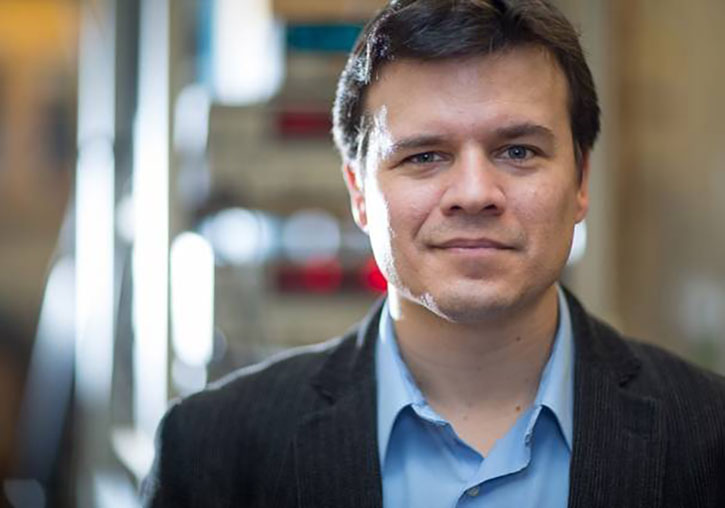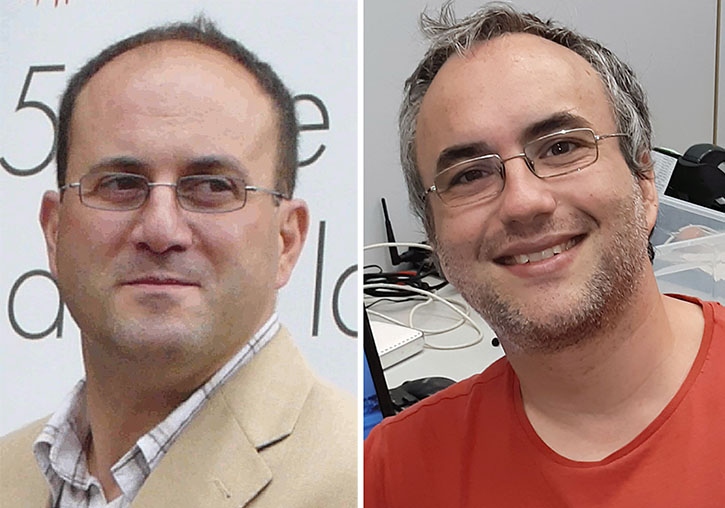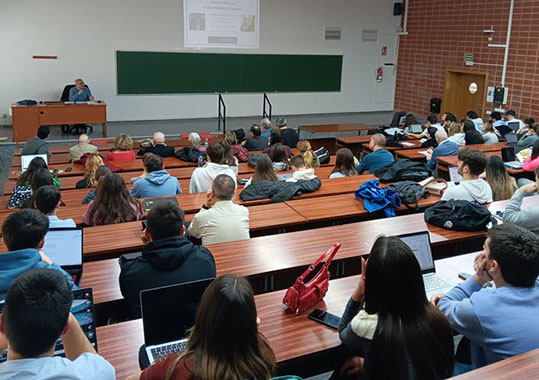Scientist Pablo Jarillo, trained at the University of Valencia, Medal of the Royal Spanish Physics Society
- Science Park
- September 21st, 2020

Pablo Jarillo-Herrero, graduated in Physics from the University of Valencia, professor of physics at the Massachusetts Institute of Technology (MIT) and 2020 Wolf Prize in Physics, has just received the RSEF Medal for his work in the physics of graphene and of analogous two-dimensional materials with electronic and magnetic properties of interest. The award for Dissemination has gone to an article by researchers from the Astronomical Observatory of the University.
With a degree in Physics from the University of Valencia, with postgraduate studies at the University of California (USA) and a doctorate from the University of Delft (Holland), Pablo Jarillo-Herrero (Mislata-Valencia, 1976) maintained a close relationship with the Institute Corpuscular Physics (UV-CSIC) and with the Institute of Molecular Science (ICMol) of the academic institution. He is currently a professor of physics at the Massachusetts Institute of Technology (MIT). His work focuses on the experimental physics of condensed matter, particularly quantum electronic transport and optoelectronics in two-dimensional materials such as graphene.
The Royal Spanish Physics Society and the BBVA Foundation have just awarded him, in their 2020 edition, the most outstanding award among the awards that both institutions grant annually – the RSEF Medal –, for the relevance and impact of his seminal work on the physics of two-dimensional materials with electronic and magnetic properties of interest, according to the jury of the Awards. “The discovery of superconductivity in rotated graphene bilayers has been one of the most important milestones in the physics of condensed matter in recent years. His pioneering contributions have enabled the understanding of the topological, magnetic and superconducting properties of two-dimensional materials and the development of electronic devices”, says the resolution.
Jarillo has awards such as the Presidential Early Career Award for Scientists and Engineers, granted by the President of the United States of America; the ONR Young Investigator Award, awarded by Harvard University; the Oliver E. Buckley, awarded by the American Physical Society and the Wolf Prize in Physics, considered the prelude to the Nobel Prize in this field.
Jarillo-Herrero already received in 2006 the RSEF Award for New Researchers, an entity that now distinguishes him with its Medal in recognition of a brilliant scientific career whose milestone is having demonstrated that graphene – a prodigious material destined to revolutionise the industry, made up of a layer of carbon atoms – can become superconducting when two layers of this material are rotated at a certain magic angle. This observation opens the door to revolutionise the transmission of energy and the field of condensed matter physics.
This is the second year in a row that the RSEF Medal has been awarded to researchers in the field of two-dimensional materials. In the last 2019 edition, the recognition went to the scientist of the University of Valencia Eugenio Coronado, professor of Inorganic Chemistry and director of the ICMol, who develops most of his research work on the border between physics, chemistry and materials science. Pablo Jarillo currently maintains close collaboration with this research institute, which focuses one of its strategic lines on two-dimensional materials and which currently has three scientists funded by the ERC for research in this field.
The RSEF and the FBBVA recognise with these awards the creativity, effort and achievement in the field of physics to professionals who carry out their work both in research and in the fields of secondary and university education, innovation, technology and dissemination.
Best Dissemination Article
On the other hand, the Award for the Best Dissemination Article of this same call has gone to the publication of the researchers of the Astronomical Observatory of the University of Valencia Iván Martí-Vidal and Eduardo Ros. “Event Horizon Telescope: Photographing the Frontiers of the Universe”, as the article is titled, was published in the Revista Española de Física, Vol. 33, No. 3, July-September 2019. The Jury highlighted “the clarity and enthusiasm in the exposition of a complex, but highly topical topic: obtaining the first image of the shadow of a black hole. This fascinating result is presented with comfort, but without neglecting scientific rigor, covering historical, technological and scientific aspects, and highlighting the Spanish contributions to his achievement”.

More information:














